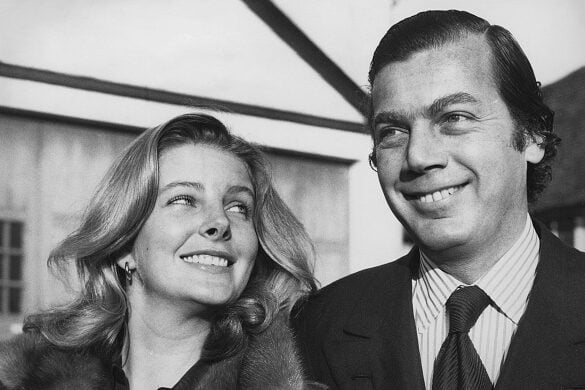What was Edgar Bronfman Sr.'s Net Worth?
Edgar Bronfman Sr. was a Canadian-American businessman who had a net worth of $2.5 billion at the time of his death in 2013.
Edgar Bronfman Sr. transformed his family's Seagram Company from a regional liquor distributor into a global beverage and entertainment empire. As president of the World Jewish Congress from 1981 to 2007, he was instrumental in securing billions in restitution for Holocaust survivors and advocating for Jewish causes worldwide. His dual legacy as a business titan and tireless advocate for Jewish rights and causes made him one of the most influential Jewish leaders of the 20th century.
Early Life and Family Background
Born in Montreal on June 20, 1929, Edgar Miles Bronfman was the eldest son of Samuel and Saidye Bronfman. His father had built Seagram into Canada's largest distiller during Prohibition by legally selling alcohol to American bootleggers. Growing up in a wealthy Jewish family, Edgar was groomed from an early age to take over the family business. He attended Trinity College School and Williams College, though he left before graduating to work for the family company.
Building the Seagram Empire
After joining Seagram in 1951, Bronfman moved to New York to oversee the company's American subsidiary. He became president of Seagram in 1971 and CEO in 1975 following his father's death. Under his leadership, Seagram expanded globally, acquiring additional spirits brands and diversifying into new businesses. His most significant business moves included purchasing Tropicana in 1988 and taking a 25% stake in chemical company DuPont in 1981, which proved enormously profitable. By the 1990s, Seagram had evolved into a $15 billion global corporation.
Media and Entertainment Ventures
In the 1990s, Bronfman and his son Edgar Bronfman Jr. steered Seagram toward the entertainment industry. The company purchased MCA/Universal in 1995 for $5.7 billion, gaining control of Universal Studios, Universal Music Group, and other media assets. However, this pivot would ultimately lead to difficulties when Edgar Jr. later engineered Seagram's merger with French media company Vivendi in 2000, a move that would eventually result in the loss of much of the family's fortune.

Getty Images
Jewish Leadership and Activism
Bronfman's most enduring legacy may be his work as president of the World Jewish Congress (WJC). During his 28-year tenure, he transformed the organization into a powerful force for Jewish advocacy. His most notable achievement was pressuring Swiss banks to pay $1.25 billion in restitution to Holocaust survivors and their heirs for assets stolen during World War II. He also successfully lobbied the Soviet Union to allow Jewish emigration and worked to expose the Nazi past of Kurt Waldheim, the former UN Secretary-General and Austrian president.
Philanthropy and Education
Through the Samuel Bronfman Foundation, named after his father, Bronfman supported numerous Jewish educational initiatives. He was particularly passionate about engaging young Jews in their heritage and founded Hillel: The Foundation for Jewish Campus Life. His philanthropic work also included significant support for educational institutions, museums, and cultural organizations. He established the Bronfman Youth Fellowships in Israel, which provides educational programs for young Jewish leaders.
Personal Life and Later Years
Bronfman was married five times and had seven children. In 2018, his youngest daughter, Clare Bronfman, was arrested and indicted on several federal charges regarding an alleged cult called NXIVM. In 2020, she was sentenced to 81 months in prison.
Despite his business setbacks in later years, particularly the Vivendi merger that diminished the family fortune, he remained active in philanthropic and Jewish communal work. He wrote several books, including "The Making of a Jew" and "Hope, Not Fear: A Path to Jewish Renaissance," which outlined his vision for Jewish life in the modern world.
Legacy
When Bronfman died in New York on December 21, 2013, he left behind a complex legacy. While his business career had both triumphs and setbacks, his work on behalf of the Jewish people was universally praised. He played a crucial role in securing justice for Holocaust victims, promoting Jewish education and identity, and standing up for Jewish rights worldwide. His transformation from a business leader to a passionate advocate for Jewish causes demonstrated how wealth and influence could be channeled into meaningful social impact. Today, his philanthropic initiatives continue to influence Jewish life and education, while his advocacy work through the World Jewish Congress set important precedents for corporate accountability and historical justice.
/2010/06/GettyImages-886653240-e1734398056845.jpg)
/2014/01/cb.jpg)
/2010/06/EDGAR-BRONFMAN-JR-1.jpg)
/2013/12/ronald-lauder.png)
/2022/04/Jerry-Moss.jpg)
/2018/10/cb-1.jpg)
/2009/09/Brad-Pitt.jpg)
/2009/11/George-Clooney.jpg)
/2020/02/Angelina-Jolie.png)
/2019/11/GettyImages-1094653148.jpg)
:strip_exif()/2015/09/GettyImages-476575299.jpg)
/2018/03/GettyImages-821622848.jpg)
/2020/01/lopez3.jpg)
/2019/04/rr.jpg)
/2009/09/Cristiano-Ronaldo.jpg)
/2017/02/GettyImages-528215436.jpg)
/2020/04/Megan-Fox.jpg)
/2010/06/GettyImages-886653240-e1734398056845.jpg)
/2018/10/cb-1.jpg)
/2014/01/cb.jpg)
/2022/04/Jerry-Moss.jpg)
/2013/12/ronald-lauder.png)
/2021/08/herb-alpert.jpg)
/2015/08/David-Lauren1.jpg)
/2019/10/denzel-washington-1.jpg)
:strip_exif()/2009/09/P-Diddy.jpg)
/2020/06/taylor.png)